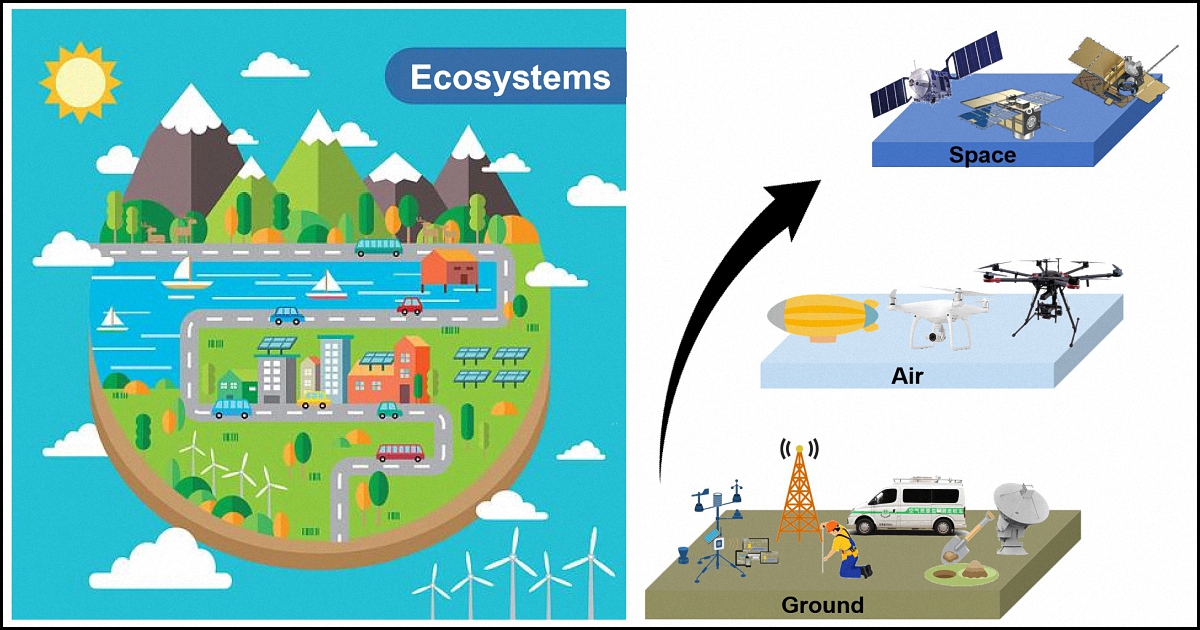Topic Editors





Advances in Multi-Scale Geographic Environmental Monitoring: Ecosystem Differences and Multi-Scale Comparisons

Topic Information
Dear Colleagues,
The second volume of Advances in Multi-Scale Geographic Environmental Monitoring is dedicated to exploring the intricate dynamics of ecosystems and their responses to environmental changes through a multi-scale lens. This journal issue seeks to bridge the gap between ecosystem-specific studies and the broader understanding of ecological processes by emphasizing two central themes: ecosystem differences and multi-scale comparisons.
At its core, multi-scale geographic environmental monitoring involves the systematic observation and analysis of Earth's surface processes and human activities across varying spatial and temporal scales. By integrating data from global to local scales, this approach provides a comprehensive framework for understanding the complex interactions between natural systems and anthropogenic influences. The second volume builds on this foundation by focusing on the unique characteristics of different ecosystems—such as forests, wetlands, and urban areas—and how these ecosystems respond to environmental perturbations. Despite significant advancements in multi-scale monitoring, several critical gaps remain in the existing body of research. A notable limitation is the lack of comparative studies that span multiple ecosystems and scales, which hinders the ability to draw generalizable conclusions. Furthermore, current research often treats scales as isolated entities, failing to fully integrate them into a cohesive framework that captures the complexity of ecosystem processes. Another challenge lies in the limited application of advanced technologies, such as AI-driven remote sensing and IoT-enabled sensors, which, while promising, remain underutilized in multi-scale ecosystem studies. Future research directions aim to address these gaps while leveraging emerging technologies. A key priority is the development of cross-ecosystem frameworks that standardize methodologies for comparing ecosystems across scales. Enhancing scale integration is another critical focus, with efforts directed toward building models that explicitly account for scale dependencies and feedback mechanisms. Interdisciplinary collaboration will play a pivotal role in achieving these goals, fostering partnerships between ecologists, geographers, computer scientists, and policymakers to tackle complex environmental challenges. In light of the above, this topic aims to collect innovative original manuscripts on the theoretical, methodological, and applied aspects of multi-scale geographic environmental monitoring, especially concerning ecosystem differences and multi-scale comparisons. Review articles and meta-analysis papers on these topics are additionally welcome. Topics of interest include the following:
- Multi-scale driving mechanisms of spatial heterogeneity in geographic environmental elements;
- Coupled spatiotemporal modeling and validation of geographical environmental dynamics;
- Reconstruction of holistic monitoring technology systems in the era of intelligent perception;
- Multi-scale transmission and trade-off assessment of ecosystem service flows;
- Simulation of multi-level interactive feedback in key land surface processes;
- Identification of scale sensitivity thresholds in geographic environment research;
- Assessment paradigms of environmental carrying capacity under human–land system coupling;
- Cross-dimensional fusion and downscaling of multi-source heterogeneous geospatial big data;
- Scale-based source analysis and error propagation models for uncertainties in geographic element monitoring.
Dr. Jingzhe Wang
Dr. Xiangyu Ge
Dr. Zipeng Zhang
Dr. Ivan Lizaga
Dr. Yinghui Zhang
Dr. Yangyi Wu
Topic Editors
Keywords
- geographic environmental monitoring
- remote sensing
- scale effect
- ecological response
- climate change
- geographic process
- driving mechanism
- spatiotemporal analysis
- sustainable development goals
Participating Journals
| Journal Name | Impact Factor | CiteScore | Launched Year | First Decision (median) | APC | |
|---|---|---|---|---|---|---|

Agronomy
|
3.4 | 6.7 | 2011 | 17.2 Days | CHF 2600 | Submit |

Drones
|
4.8 | 7.4 | 2017 | 20.1 Days | CHF 2600 | Submit |

Geomatics
|
2.8 | 5.1 | 2021 | 20 Days | CHF 1000 | Submit |

ISPRS International Journal of Geo-Information
|
2.8 | 7.2 | 2012 | 34.2 Days | CHF 1900 | Submit |

Land
|
3.2 | 5.9 | 2012 | 16 Days | CHF 2600 | Submit |

Remote Sensing
|
4.1 | 8.6 | 2009 | 24.9 Days | CHF 2700 | Submit |

Preprints.org is a multidisciplinary platform offering a preprint service designed to facilitate the early sharing of your research. It supports and empowers your research journey from the very beginning.
MDPI Topics is collaborating with Preprints.org and has established a direct connection between MDPI journals and the platform. Authors are encouraged to take advantage of this opportunity by posting their preprints at Preprints.org prior to publication:
- Share your research immediately: disseminate your ideas prior to publication and establish priority for your work.
- Safeguard your intellectual contribution: Protect your ideas with a time-stamped preprint that serves as proof of your research timeline.
- Boost visibility and impact: Increase the reach and influence of your research by making it accessible to a global audience.
- Gain early feedback: Receive valuable input and insights from peers before submitting to a journal.
- Ensure broad indexing: Web of Science (Preprint Citation Index), Google Scholar, Crossref, SHARE, PrePubMed, Scilit and Europe PMC.


